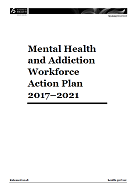Source: New Zealand Plunket Society – Press Release/Statement:
Headline: Remember the ‘heater-metre rule’ this winter
The recent wintry blast has signalled that winter is not far away, and Plunket is reminding families that now is a good time to get prepared and stay alert to the dangers from heaters, fireplaces and other sources of winter warmth.
“We always advise parents and caregivers to remember the ‘heater-metre rule’. “Heat can build up quickly so keep heaters at least one metre away from bedding, curtains, clothing and furniture and other flammable items,” says Sue Campbell, Plunket’s National Child Safety Advisor.
“It is also important to put up a safety guard around any heat source and attach it to the wall,” says Ms Campbell. “Young children are attracted to flames and are unaware of the dangers.”
Winter is also a time for illnesses like coughs, colds and the flu. Families can help prevent this by airing mattresses at every opportunity when baby is out of the bed.
Keeping the room ventilated is also important, and if a heater is used in the bedroom keeping the door open slightly will help the room from overheating.
“Having plenty of blankets on hand is also a good idea, especially if power cuts are possible due to extreme weather. The best kind are cotton and/or woollen as natural fibres breathe and help babies and children from overheating.”
To keep you and your whānau safe in the home this winter here are some top tips:
- Get heaters and fireplaces checked prior to winter
- An unflued gas heater can be dangerous and should never be used in a room where people sleep or a confined space.
- Put up a safety guard, attached to the wall, around heaters, open fires and solid fuel burners to reduce the risk of burns
- Dress children in close-fitting nightwear to reduce the risk of fire
- Keep the bedrooms well ventilated and if you use a heater keep the door open slightly
- A heater with a thermostat to control the temperature is recommended for baby’s room
- Cotton and/or woollen blankets are best to help prevent overheating
- Place baby’s bassinet or cot away from windows
- Keep hot drinks and soups out of reach from children
- Check smoke alarms and have an escape plan in case of fire
For more home safety information see our website.
If parents or caregivers have any questions about keeping safe over winter talk to your Plunket nurse or contact PlunketLine on 0800 933 922.
– –
